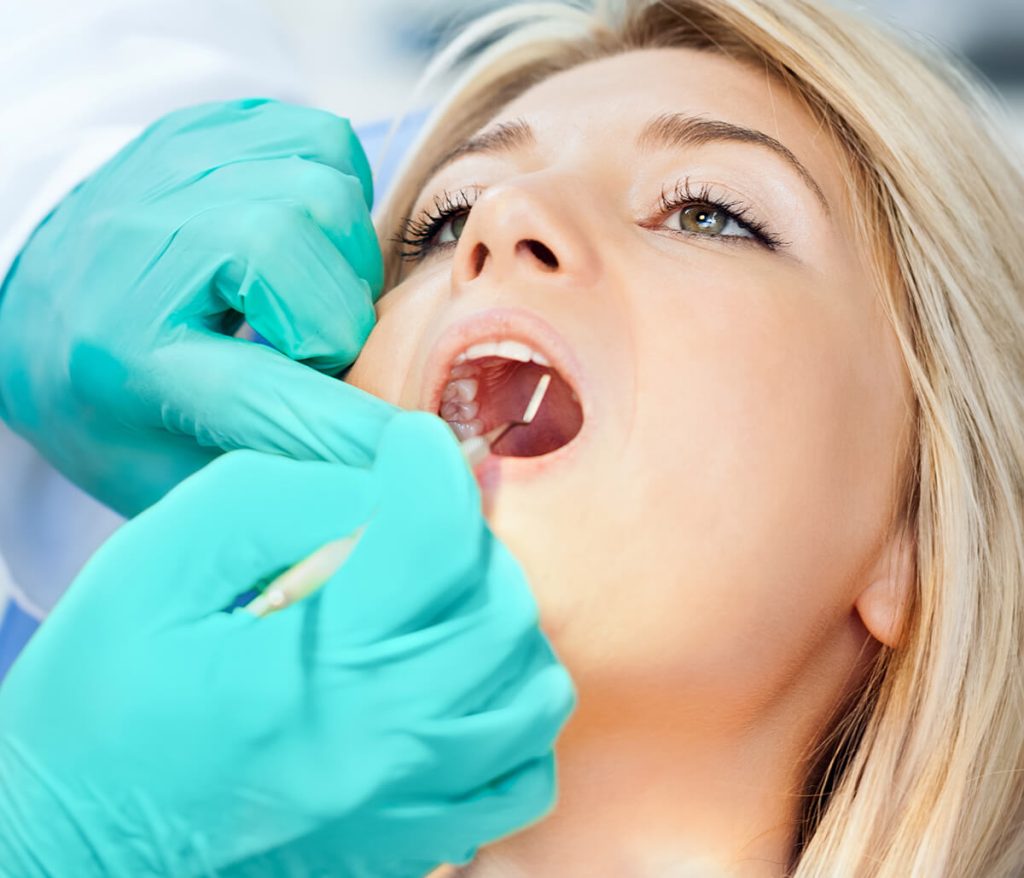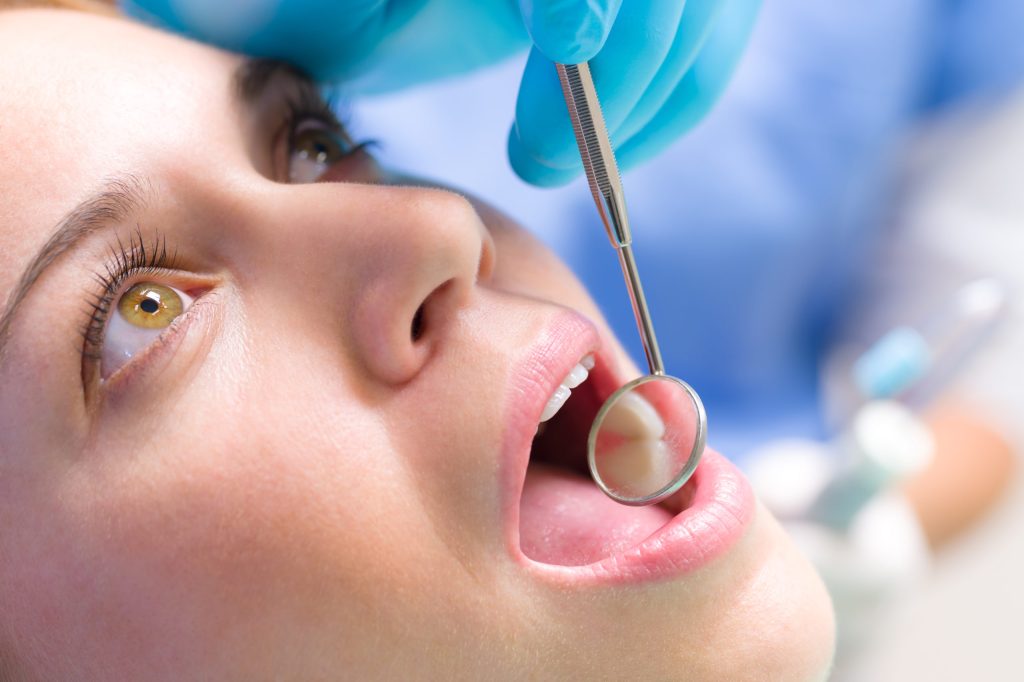Treatments
Gum Disease Treatment in Lahore
Gum disease, caused by poor dental hygiene, is hazardous. An infection of the gums can lead to tooth-supporting bone damage. Gum disease is often painless; tooth loss may occur if left untreated. The two main types are gingivitis and periodontitis.
Gingivitis, affecting up to 70% of Pakistanis, is the most common form. Around 30% of individuals over 30 have periodontitis. Early detection and treatment improve dental health. Regular dental checkups, brushing techniques twice daily, and flossing help prevent gum disease.
Symptoms of Gum Disease:
Good oral health is crucial due to the often painless nature of gum disease. Regular dental checkups are necessary to ensure proper maintenance.
Gum disease symptoms can be imperceptible. Some signs could be:
- red, swollen or tender gums
- bleeding when you floss or brush
- loose teeth or separation between teeth
- continuous bad breath
- gums that pull away from teeth
- when you bite, the position of your teeth changes
Gum disease can be asymptomatic for some individuals. Regular dental checkups serve as the primary defence. Early detection during hygienist visits ensures optimal oral health.


Causes of Gum Disease:
Oral bacterial overgrowth leading to plaque buildup is the primary cause of gum disease. Poor oral health is a significant contributing factor.
There are a few more risk factors for gum disease, though, including:
- Smoking
- Diabetes
- Pregnancy or hormonal changes
- Medication
- Genetics
- Other health problems
- Stress
- Poor nutrition
Gum disease is common but treatable. Regular dentist and hygienist visits are essential for maintaining dental health.
What now
FAQs
01. How much does it cost to treat gum disease?
The expense of toothache treatment can vary depending on the underlying cause. It is recommended to seek an evaluation from a dentist to assess the toothache, as it may indicate a more significant issue. The dentist will diagnose the source of the problem and provide information on treatment costs. When booking online, select the option for a toothache or emergency appointment.
02. Can gum disease be prevented?
Toothache differs significantly from other bodily pains. It can be highly intense, quickly escalating in severity. Numbing dental pain can be challenging as teeth’s nerves solely respond to stimulation with pain, lacking sensitivity to heat, cold, or touch. Moreover, numerous neurological connections exist between teeth and the brain’s pain centre.
03. Does gum disease hurt?
Toothaches can be intensified at night due to oral nerve stimulation. This stimulation activates the brain, keeping one alert and potentially making it harder to fall asleep. Also, late-night eating can exacerbate toothache pain, particularly with scorching, cold, sweet, acidic, or starchy foods. The absence of distractions at night may make the pain feel more pronounced while lying down can increase blood flow to the head, further intensifying sensitivity in the mouth and worsening toothaches.
04. Can gum disease be cured?
Toothaches can be intensified at night due to oral nerve stimulation. This stimulation activates the brain, keeping one alert and potentially making it harder to fall asleep. Also, late-night eating can exacerbate toothache pain, particularly with scorching, cold, sweet, acidic, or starchy foods. The absence of distractions at night may make the pain feel more pronounced while lying down can increase blood flow to the head, further intensifying sensitivity in the mouth and worsening toothaches.
05. Does gum disease hurt?
We understand. Most people afraid of going to the dentist have had a negative experience. Relax. Our kind and sympathetic dentists are sympathetic to your feelings. The best thing to do is to let us know how you’re feeling, whether you’re nervous or concerned about enduring more pain or the potential cost of the therapy. It is part of our responsibility to make you feel at ease.
06. What happens if you have gum disease?
Yes. Taking proper care of your oral health can significantly lower your risk of developing a toothache. That entails a mix of at-home dental care and developing a fantastic rapport with your dentist. We advise adopting daily healthy behaviours and going to the dentist frequently. Practice proper oral hygiene routines at home, such as brushing your teeth twice daily and flossing once daily, for the best oral health.
Schedule a yearly appointment with your dentist for a routine exam and x-rays.
07. How do you get rid of gum disease at home?
Dental pain or sensitivity can be intermittent, indicating a transient inflammatory response in the tooth. However, this temporary relief is short-lived. A dentist must receive a correct diagnosis to prevent further damage and relieve long-term pain. The expertise and evaluation of a dentist are necessary to determine the source of the pain and provide appropriate care.

